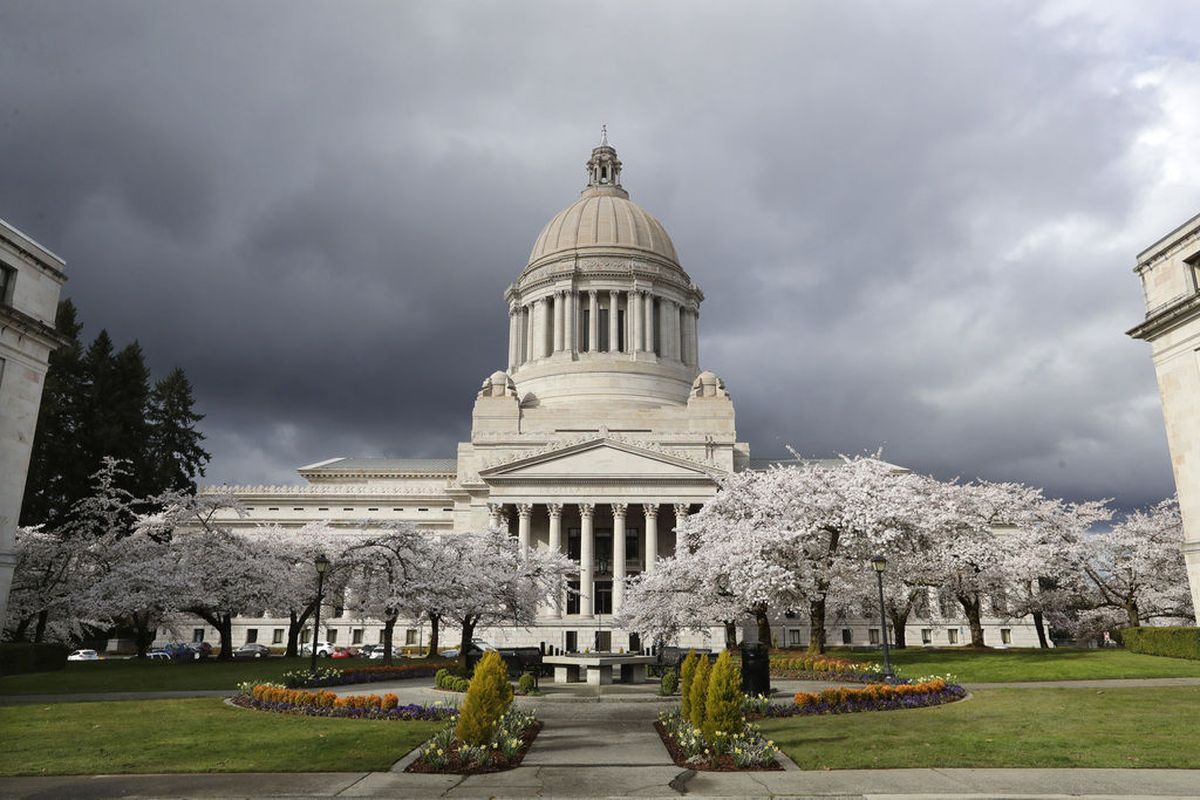State budget faces $4.5 billion hole; special session expected

OLYMPIA – The state’s budget faces a $4.5 billion hole over the next year as the economy contracts and tax revenues fall from the COVID-19 pandemic.
The projected revenues for the two years after that also are expected to be down $4.3 billion from previous estimates, state Chief Economist Stephen Lerch told legislators Wednesday. That means the state is looking at a “substantially worse” financial situation than the projections used by the Legislature to write a budget earlier this year before the virus hit.
To help reduce the shortfall, Gov. Jay Inslee announced that most state workers would have one unpaid furlough day each week through July 28, and one a month at least through the fall. An exception was made for the Health Department, which is battling the pandemic, and the Employment Security Department, which has been overwhelmed by requests for unemployment benefits from people thrown out of work by business closures.
Managers and many other nonunion workers would not receive the 3% raises scheduled to begin July 1. Those changes would save about $55 million and if other branches of state government and agencies controlled by other elected state officials followed suit, it would save about $91 million, Inslee said.
The sharp drop in revenues will almost certainly lead to a special session to revise the budget, legislators said.
“It’s not a question of if, but when,” said Rep. Timm Ormsby, a Spokane Democrat who sits on the Economic and Revenue Forecast Council and is chairman of the House Appropriations Committee.
Democrats and Republicans on the council didn’t agree to an answer of the “when” question.
Ormsby said the forecast was the “triggering event” to discussions about when a session should be held, and a big question remains regarding how much, if any, financial help will come from the federal government.
Senate Ways and Means Committee Chairwoman Christine Rolfes, D-Bainbridge Island, said a decision will be made in “the next week or so” after discussions between Democrat leaders in the Legislature and Inslee.
Sen. John Braun, of Centralia, the ranking Republican on the Ways and Means Committee, said it should be called this month, before new spending kicks in with the fiscal year that starts July 1. Canceling new programs and scheduled raises for state employees would go a long way to filling the hole.
“This is no surprise,” Braun said of the sharp drop in revenue. “We don’t have to solve all this all at once. It doesn’t have to be a long or intense special session.”
Republicans said the shortfall should be covered without raising taxes. Businesses are struggling to survive, and additional taxes might force some to close.
“We need to do this without taxes,” Rep. Ed Orcutt, R-Kalama, said.
Rolfes said that could be difficult because some portions of the budget can’t be cut, so other areas would bear the brunt of reductions. The public schools budget would be “very difficult, if not impossible, to make cuts because of constitutional obligations,” she said. “Everything is on the table.”
Inslee said the state has “many tough decisions ahead of us,” but said it was too early to talk about taxes. The time to call a special session will be when budget writers have a plan that will cover the shortfall, and the state should wait to see whether Congress can agree on a package of federal aid to the states.
But he agreed filling the hole created by reduced revenue will be difficult because portions of the budget can’t be cut. The areas that aren’t protected tend to be those that provide programs for “the least among us,” he said.
If Republicans think the shortfalls can be covered solely by cuts, they should propose some, other than a delay in raises to union employees, which Inslee said would be about equal to the money saved through furloughs.
“Critics are quite courageous in talking about invisible cuts but not really stepping forward on them,” he said. “The nature and the amount of these cuts, depends to some degree on what we get from the federal government.”
Most of the economic news presented to the council was bad. State unemployment was 15.1% in May, a slight improvement from 16.3% in March but still higher than the previous recession. Consumer confidence, manufacturing activity, job postings and housing permits were all down from the February economic forecast.
Almost all tax revenues were down as well, off 6% in March and 14% in April, with the sales tax, business and occupation tax, and real estate excise tax all taking significant hits.
One area where state revenue was up: marijuana taxes.
“We’ve had two months when they’ve been at record levels,” Lerch said.
Making projections in the midst of a “virus recession” is difficult, he told the council.
“There’s a lot of uncertainty about how businesses and how consumers will react,” Lerch said.